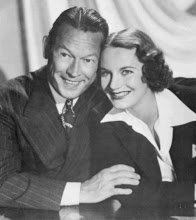Fewer Iraq Casualties Fatal
"The survival rate for U.S. servicemembers wounded in Iraq has reached 90 percent, higher than in any previous war, and 10 points higher than in the 1991 Persian Gulf War."
"The major reason, says the general in charge of Army medical training, is improved trauma care being delivered moments after injury by medics and a growing number of soldiers trained as combat lifesavers."
This is certainly good news.
However, keeping in mind that U.S. fatalites are taking place on a daily basis, as well as the recent media-hyped "milestone" of 2,000 fatalities, we should remember that though we're allowed to know the ever growing number of fatalities, there's also an ever growing number of wounded, the number of which, we don't know. The administration is keeping that a secret, as much as it's been preventing publicity on returning coffins.
If we can at least assume the wounded outnumber the deaths, that means thousands of wounded, many of whom are probably disabled for life. The temporarily wounded are probably sent back as soon as they're able.
The fatalities will eventually become just a number, like the 58,000+ lives lost to Viet Nam. But I remember meeting many wounded survivors of that war, during the first two decades after it ended. I never met any as a group, but individually, under many different circumstances. If history is any lesson, these new vets are also going to affect our society for years to come. Most of the Nam vets I knew, were not the ones able to rise to prominence such as the likes of John Kerry or John McCain. The ones I met were damaged, both mentally and physically. The ones with mental problems due to the war, had a much greater impact on society than the others. Many, if not hooked on drugs overseas, got hooked after returning and finding they just could not cope. Alcoholism, drug addiction, spousal abuse, crime, or just not being able to adjust enough to hold a steady job. There was not enough help for them, and in many cases, no simpathy from the government they served either. There was no understanding, and no tolerance for even discussing the issues relating to returning vets. This nation was so tired of the war, that when it was over, everyone just wanted to forget, and move on. Forgetting the war, meant forgetting the vets too, and we did.
No matter how you feel about this war, let's not make the same mistake this time around. Remember, and help those who return with only part of their lives. They badly need us.










0 Comments:
Post a Comment
<< Home